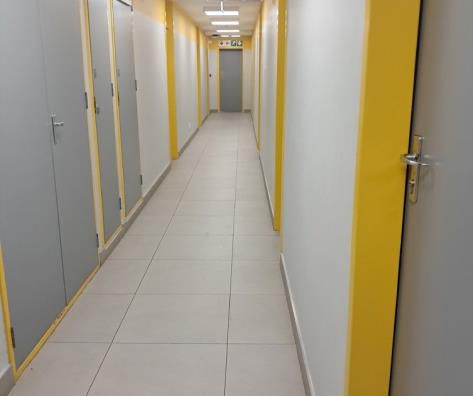Enhancing Campus Security and Efficiency at the University of Pretoria
The University of Pretoria, one of South Africa’s premier academic institutions, is deeply committed to ensuring a secure and efficient environment for its students, faculty, and staff. By 2009, the university recognized the urgent need to modernize its outdated and vulnerable key systems, which were increasingly susceptible to unauthorized access and operational inefficiencies.
Challenges
1. Outdated Key Systems: The campus relied on a mix of cylinder and 2-lever key systems, which were prone to unauthorized duplication and master key theft.
2. Access Control Issues: Maintenance and security teams faced difficulties managing access across a vast and complex infrastructure.
3. Operational Inefficiencies: Frequent lockouts and the absence of centralized control led to delays and increased administrative overhead.
4. Operational Inefficiencies: Lockouts and lack of centralized control created delays and increased administrative overhead.
Solution and Implementation:
To address these challenges, the University of Pretoria partnered with ASSA ABLOY to implement the Mul-T-Lock Temporary Lock-Out (TLO) Cylinder System — a fully mechanical, high-security solution designed for flexible and reliable access control.
The solution included:
1. 6,600 Mul-T-Lock TLO lock units across 30 student residential buildings.
2. 6 buildings equipped with the Interactive+® Mul-T-Lock Key System, offering patented key control and enhanced security.
3. 24 buildings using the Classic Mul-T-Lock Key System, known for its mechanical strength and long-standing reliability.
Product Highlight: Mul-T-Lock TLO System
The Mul-T-Lock TLO System is a groundbreaking mechanical access control solution that offers:
Four-Key Mechanism:
• Blue Key: Standard use for students, tenants, storerooms, etc.
• Red Lockout Key: Temporarily disables all blue keys, restricting access.
• Green Reversal Key: Reverses the lockout, restoring access to blue keys.
• White Override Key: Always grants access, regardless of lockout status.
Fully Mechanical:
No electronics or software required—ideal for environments where simplicity, reliability, and cost-effectiveness are critical.
Duplication Control:
Supplied with four duplication key cards (one per key type) to ensure secure key management.
Available on Mul-T-Lock’s Interactive+, Classic, and MT5+ platforms and can be installed on any double, half, or turn knob cylinder.
Advantages:
The Mul-T-Lock TLO system offers a range of advantages that make it an ideal solution for secure and efficient access control.
It provides total control over access, allowing users to determine precisely when and for how long entry is permitted or restricted. One of its standout benefits is that it eliminates the need for cylinder replacement or key collection during lockouts or access restoration, streamlining operations and reducing administrative burden.
The system is also user-friendly, designed for easy installation and seamless integration with existing cylinders. Built with proven mechanical strength, the TLO system ensures long-term reliability and durability, making it a dependable choice for high-security environments.
Riaan de la Rey, Maintenance Department, University of Pretoria, stated:
“The system gave us the control we needed. It’s internationally approved, reliable, and has significantly improved our campus security.”
Applications in a Campus Environment:
The Mul-T-Lock TLO system is particularly well-suited for university environments, offering practical and flexible access control solutions tailored to campus needs.
It enables administrators to temporarily restrict access to student rooms during holidays or maintenance periods, ensuring security without the need to collect or replace keys.
Additionally, it provides a reliable way to secure storerooms containing sensitive equipment, safeguarding valuable assets. The system also helps prevent unauthorized access to service areas over weekends, maintaining operational integrity and enhancing overall campus safety.
Conclusion
The University of Pretoria’s collaboration with ASSA ABLOY and the deployment of the Mul-T-Lock TLO system has significantly enhanced campus security and operational efficiency. By securing over 6,600 access points with a scalable, mechanical access control solution, the university has addressed its immediate security concerns and laid the groundwork for a robust, future-ready access management system.
- Education


